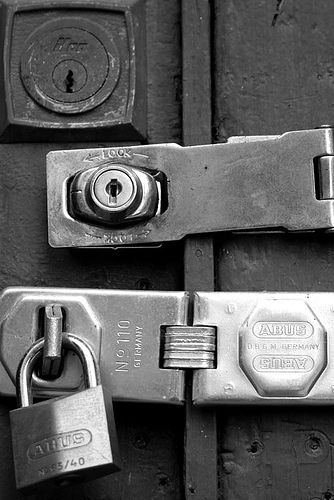8 Ways A Restraining Order Can Affect You
 By Sarah Long
By Sarah Long
Attorney
Restraining orders, also known as protective orders or orders of protection, are better known as tactical nuclear weapons in family law cases. A system that was designed to protect against abuse is itself being abused.
The misuse of restraining orders by women when going through a divorce is one of the more prevalent and unfortunate trends in family law.
This is because protective orders are easy to obtain – all a woman has to do is say that she is in reasonable fear for her safety. Documented evidence of abuse is not required.
With a small statement, the accused (again, the man in about 85% of the cases) can be forced to stay out of the home, barred from parenting time, and prevented from any contact with his children, including through phone and email. In an instant, his house and kids can be taken away from him.
So it’s important to be aware of restraining orders and the impact these orders can have on your case. Here are answers to 8 common questions about orders of protection.
What is a Protective Order?
An order for protection is usually entered against a family or household member when there is:
1.) physical harm, bodily injury or assault;
2.) the infliction of fear of imminent physical harm, bodily injury, or assault; or
3.) terroristic threats, criminal sexual conduct, or interference with an emergency call.
Who qualifies as a family or household member?
A spouse or former spouse; parents and children; persons related by blood; persons who are presently residing together or who have resided together in the past; persons who have a child in common regardless of whether they have been married or lived together at any time; a man and women if the woman is pregnant and the man is the alleged father, regardless of whether they have been married or lived together at any time; and persons involved in a significant romantic or sexual relationship.
Read Related Article: Using Restraining Orders To Gain Access To Marital Home
What are my options at an Order For Protection hearing?
There are usually three options: (1) admit to the allegations and be convicted; (2) agree to the restraining order conviction but do not admit any facts on the record; or (3) try the order for protection in front of a judge just like a trial with exhibits and witnesses.
What happens if I am convicted of an Order For Protection?
Most likely the city or county prosecutors will also charge you with a crime of violence. Most protective orders are considered a misdemeanor crime of violence. However, they can be gross misdemeanors and felonies.
What is a misdemeanor crime of violence?
Has, an element, the use or attempted use of physical force, or the threatened use of deadly weapon; and
Was committed by a current or former spouse, parent, or guardian of the victim; by a person with whom the victim shares a child in common; by a person who is cohabiting with or has cohabited with the victim as a spouse, parent, or guardian; or by a person similarly situated to a spouse, parent, or guardian of the victim.
How does a conviction of a crime of violence affect me?
Where I practice, your gun rights will forever be changed. My state law may allow you to possess firearms after a certain period of time.
Under federal law, you are forever prohibited from possessing firearms or ammunition.
Can I ever get my gun rights back?
Yes, if the conviction has been expunged or set aside, or is an offense for which you have been pardoned or have had your civil rights restored, unless the pardon, expungement or restoration or civil rights expressly provides that you may not ship, transport, possess or receive firearms.
Any of these options are extremely difficult to achieve.
What happens if there is an Order For Protection entered against me?
Under federal law, it is unlawful for any person to possess a firearm if he/she is subject to an order that restrains such person from harassing, stalking or threatening an intimate partner of such person or child, or engage in other conduct that would place an intimate partner in reasonable fear of bodily injury to the partner or child.
Firearm means any weapon that will or is designed to or may readily be converted to expel a projectile by the action of an explosive.
Bow hunting would probably be ok because the arrow is not expelled through an explosive. Even though a muzzleloader is only one shot, it is still considered a firearm.
Contact the divorce attorneys for men at Cordell & Cordell if you are being subject to false allegations of abuse resulting in protective orders being entered against you.
